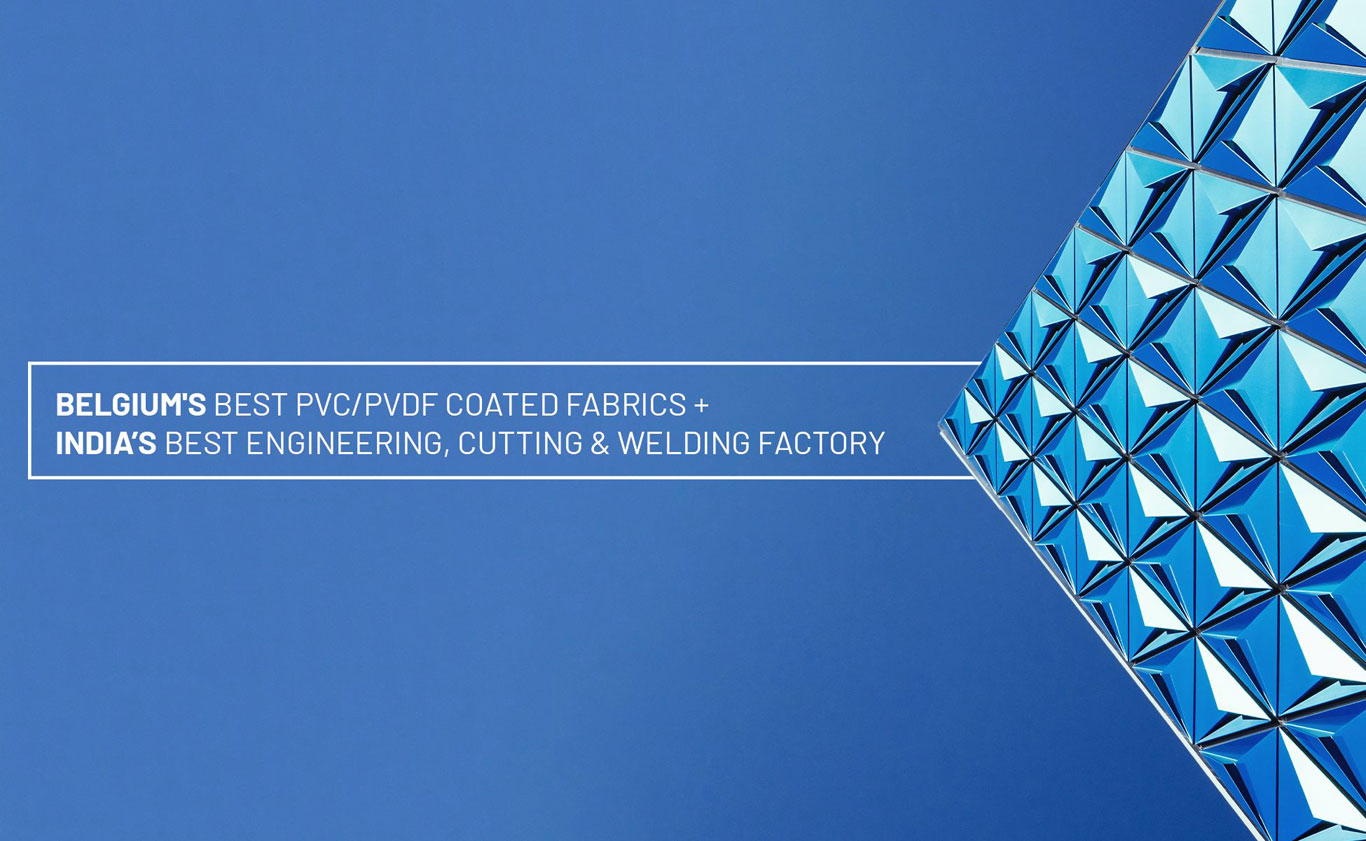
Tensile Membranes Application
The tensile fabric structure is defined as a fabric membrane system that is tensioned using wires, steel, cables, or any other form of support system. This three-dimensional surface is also known as tension fabric structure (a.k.a. tension membrane structure) that is used to create shading, roof, or any decorative component. This tensile architecture allows property owners and architects to experience a wide range of benefits as it helps to seek dynamic design solutions to shading requirements.
Tensile structures are cost-effective solutions to create facades, building envelopes, open air canopies, stadia, athletic facilities, special use facilities, interiors, sculptures, and environmental response structures.
Building Envelopes:
Tensile building envelopes or tensile membrane structures are thin-shell structures that carry tension but no compression or bending. This lightweight structural system coated with PTFE, PES, PTFE coated fiberglass, or ETFE can take on a variety of shapes and span large distances.
Furthermore, these tensile fabric structures provide year-round protection from the elements and are used for roofs and canopies. These low-maintenance structures are used in amphitheaters, museums, pavilions, entertainment venues, hotels, government, and municipal buildings, etc. and their smooth and reflective surfaces provide plenty of daylight.
Amphitheaters:
Tensile fabric structures provide you the design flexibility and allow you to achieve iconic forms to create unique and modern amphitheaters. Furthermore, architectures can create remarkable amphitheaters with these tensile membranes for large spans allowing unobstructed views. Adding to this, the lightweight fabric material with less design structure can pave the way to cost-effective solutions. These structures can allow a desirable amount of daylight and at the same time, provide protection from the rain and sun.
Passenger Transport - Oriented Designs:
When planning for an iconic signature place, then tensile fabric structures help you in a great way. Institutions, architects, and communities looking out for train and transit-oriented designs can go through unparalleled solutions with these tensile membrane canopies.
Furthermore, tensile fabric structures provide protection to objects, occupants, vehicles, etc from heat, rain, wind, and other environmental elements. They create a unique recognition and appealing look with a good night-time glow. Adding to this, tensile membrane structure canopies are lightweight due to the fabric composition and are generally low cost.
Airport Canopies:
When a passenger arrives at the terminal, the real experience of the airport begins. However, it is very important to provide protection for the passengers from the environmental elements and this can be done using lightweight tensile structure canopies. Furthermore, fabric structures for airports are termed out to be cost-effective when compared to metal and glass solutions. Thus, these tensile membranes are considered to be highly durable as they withstand extreme weather conditions and require less structure providing design flexibility.
Open Air Projects:
Some outdoor places need the best protection from environmental elements that result in open-air structures. Outdoor applicative places include an amphitheater, golf resort, wharf, or an outdoor mall that can be designed with a variety of design styles and options. Furthermore, tensile fabric structures provide year-round protection from certain environmental elements like rain, solar glare, heat, and snow. Tensile fabric structures allow you to create a signature style due to their design flexibility.
Stadiums & Athletic Facilities:
Tensile fabric structures create an optimal environment in a stadium or an indoor athletic facility for both spectators and athletes. Adding to this, tensile structures can provide multiple benefits ranging from daylight to shading, and thermal control. Furthermore, tensile fabric structures coated with PTFE, ETFE, PES, and PTFE coated fiberglass comes in a variety of structural configurations allowing natural ventilation and thus, reducing solar glare.
Due to their lightweight, these structures can be stretched long at greater heights and by maintaining their structural integrity. Adding to this, tensile structures require low maintenance due to their self-cleaning ability with rainwater. Therefore, domes, canopies, and protective coverings are widely used in stadiums and athletic facilities.
Interior:
Due to its lightweight and economical properties, tensile fabric structures can be used to transform an interior space and create a unique visual experience. Also, the transparent quality of tensile structures helps in directing light in traditionally dark spaces and even in corridors. Therefore, these structures can be designed and fabricated that can help to dampen or amplify sound.
Application Areas are
- Architectural and Technical Textiles for Textile Architecture Solutions
- Coated Fabrics for Event Halls
- Coated fabrics for Industrial Halls
- Coated Fabrics for Light Weight Construction Halls
- Coated Fabrics for Sports Halls
- Technical Membrane for Hanging Ceilings
- Technical Membrane for Liners
- Technical Membrane for Roofing
- Technical Membrane for Suspended Ceilings
- Tensile Membrane Structures for Restaurants
- Tensile Membrane Structures for Air Supported Halls
- Tensile Membrane Structures for Car Shades
- Tensile Membrane Structures for Interior Architectural Textiles
- Tensile Membrane Structures for Modular Industrial Constructions
- Tensile Membrane Structures for Parking Shades
- Tensile Membrane Structures for Roof Covers
- Tensile Membrane Structures for Shelter
- Tensile Membrane Structures for Solar Protection
- Tensile Membrane Structures for Sport Halls
- Tensile Membrane Structures for Textile Facades

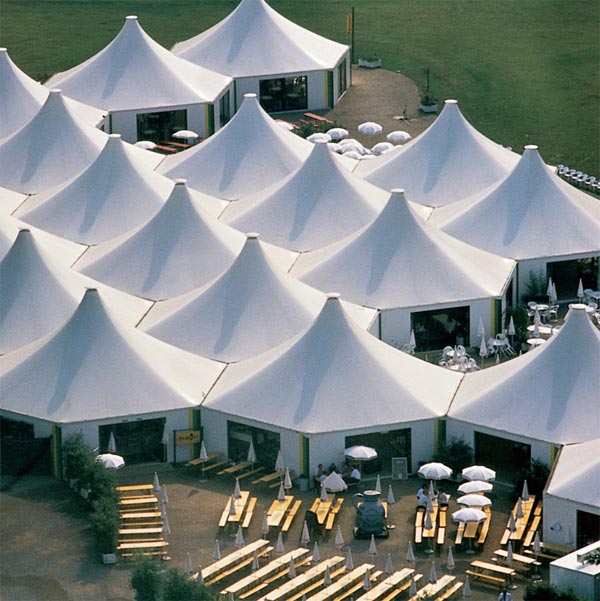
Used in MODERN ARCHITECTURE
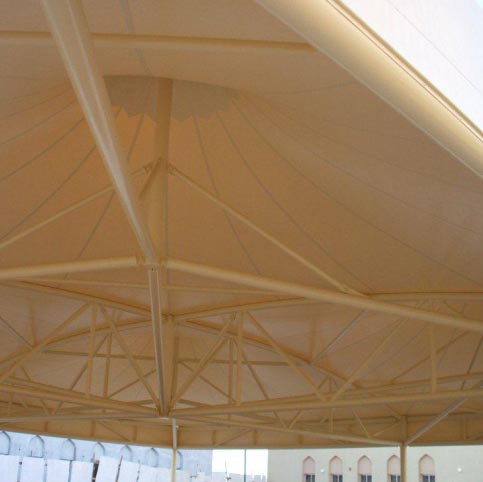
Aesthetical, light weight and durable designs
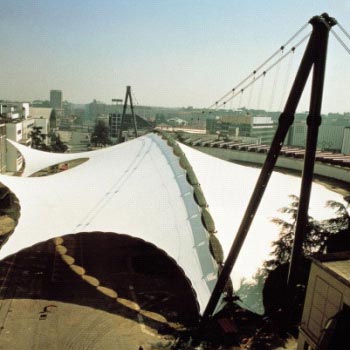
Covers large areas No support needed for constructions.
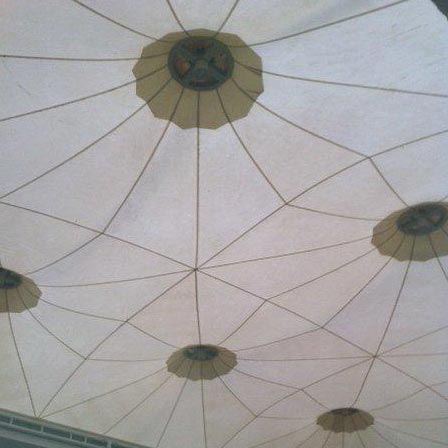
Prevent light transmission & reduce heat transmission.

European and international regulations define the production process & technical.
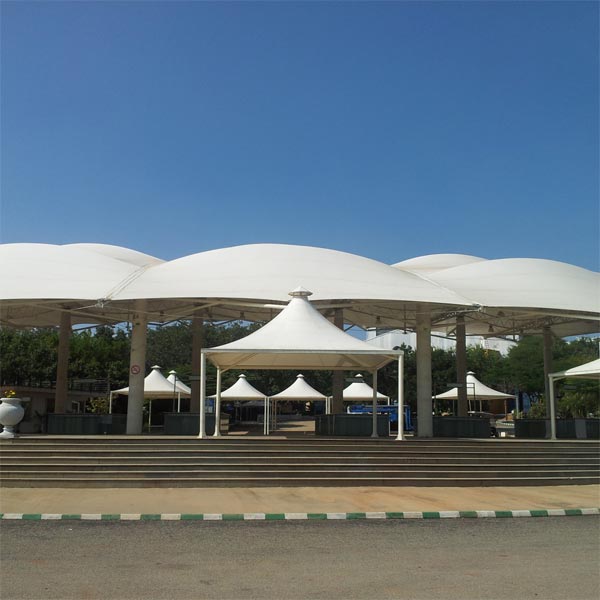
Aesthetical, functional, separational, figurative & visual purpose uses

Translucent membranes provide natural lighting

We offer from SIOEN's manufacturing plants in Belgium & France. High quality lightweight & heavy weight Coated Textiles for tensile membranes, rooftops, sides, tents, halls, domes, etc.
Know More About - Tensile Membrane
- Types of Tensile Fibre and Structure
- Feature of Tensile Membrane
- Properties of Tensile Membrane
- Application of Tensile Membrane
- Advantages of Tensile Membrane
- Benefits of Tensile Membrane
- Characteristics of Tensile Membrane Structure
- Types of Fabric Material for Tensile Structures
- Factors Affecting Performance of Membrane Structures
Get Your Free Quote Today!
